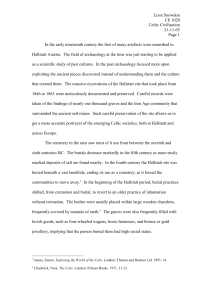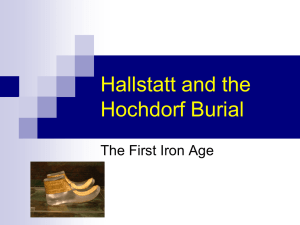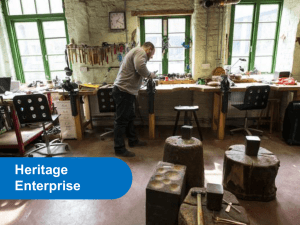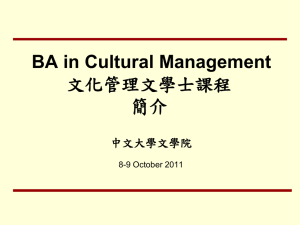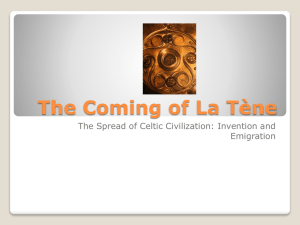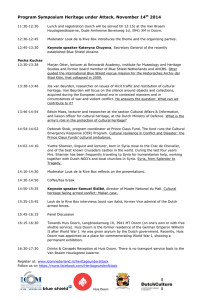Environmental Planning in Cultural Heritage Sites
advertisement
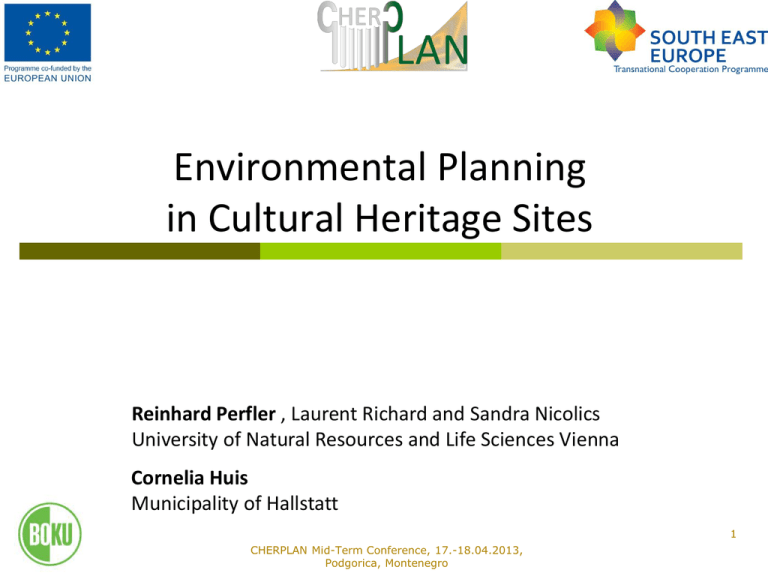
CHERPLAN Environmental Planning Enhancement of Cultural Heritage through Environmental Planning and Management in Cultural Heritage Sites Reinhard Perfler , Laurent Richard and Sandra Nicolics University of Natural Resources and Life Sciences Vienna Cornelia Huis Municipality of Hallstatt 1 CHERPLAN Mid-Term Conference, 17.-18.04.2013, Podgorica, Montenegro Content What Environmental Planning is about in CHERPLAN Steps to be taken – the CHERPLAN Environmental Planning Concept Implementing Environmental Planning in Hallstatt Why applying „Environmental Planning“ for Cultural Heritage Site Management? Consequences of inappropriate planning and mismanagement Instead of making use of the potential of cultural heritage… Deterioration of the sites: uncontrolled construction activities, insufficient maintenance/preservation of cultural heritage sites, hit&run tourism or also lack of tourism marketing etc. Jeopardizing of community development: overcrowding of community area, higher living costs, inappropriate infrastructure, lowered amenity values, emigration, economic decline CHERPLAN Environmental Planning approach Demand-driven planning perspective Involvement of different – sometimes even contradicting – interest groups Enhancement of transparency and access to comprehensive information Understanding of causes and effects - assessment of impacts Support advocacy and committment for decisions made in the respective communities CHERPLAN Environmental Planning approach PARTICIPATION MULTIDISCIPLINARY PLANNING TOOLS Waste management Environmental Management Plan as planning framework CHERPLAN Environmental Planning Concept Main steps CHERPLAN Environmental Planning Concept Two documents Concept report Annexes with planning baselines for selected topics relevant for EP available online www.cherplan.eu Environmental Planning Concept Document 1: Concept report Background of CHERPLAN project Overview of the CHERPLAN approach: scope and objectives, introduction to supportive tools and documents Description of each planning phase and respective steps (+ examples from application in Hallstatt) Proposal for structure of an Environmental Management Plan Environmental Planning Concept Document 2: Annexes Introduction to Environmental Planning Planning baselines for selected topics related to Cultural Heritage relevant infrastructure and services Energy efficiency of protected historical buildings, mobility and transport planning, solid waste management, spatial planning, tourism, water services infrastructure Introduction to CHERIS WebGIS Plattform Environmental Planning in Hallstatt, Austria Regional System Analysis Stakeholder identification during workshop with project team Hallstatt Identification of main issues, issue owners and worldviews during workshops with a Hallstatt project group (20 community members) & project team Hallstatt and SWOT Analysis Defining Visions and Scenarios Developing visions in relation to „Hit & Run Tourism“ and local and regional development potentials During workshops with project group Student project in Hallstatt Expert consultation Preparation of a population survey for extending public participation Prioritization of Fields of Action Implementation and analysis of population survey in Hallstatt (January – March 2013) Discussion of results & scenarios and prioritization of fields of action in a workshop (with project group) and during a public event based on results of population survey (April and May 2013) To be carried out…. Action & Business Planning for selected interventions in further workshops and increased involvement of relevant regional & national players Compilation of an Environmental Management Plan Challenges Opportunities Fear of change, limited resources Time-consuming process that …requires mentality changes or paradigm shifts Working together despite conflicting interests Politics and „Hidden agendas“ – to understand who really „pulls the strings“ People are interested and come up with ideas for solutions … but also provides a strong basis for sustainable community development Make use of potential of different perspectives Good understanding provides basis for ownership, commitment, more effective implementation of solutions Contact Reinhard Perfler reinhard.perfler@boku.ac.at Scientific project coordinator for CHERPLAN at University of Natural Resources and Life Sciences Vienna, Institute of Sanitary Engineering and Water Pollution Control Cornelia Huis and Frank Höll gemeinde@hallstatt.ooe.gv.at Project coordination for CHERPLAN in Municipality of Hallstatt
